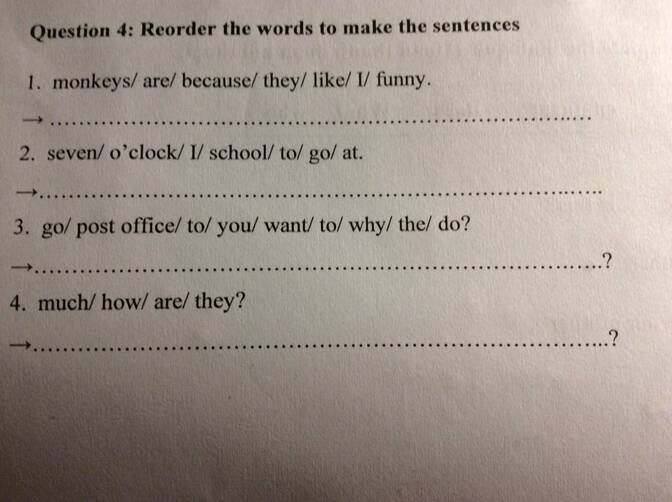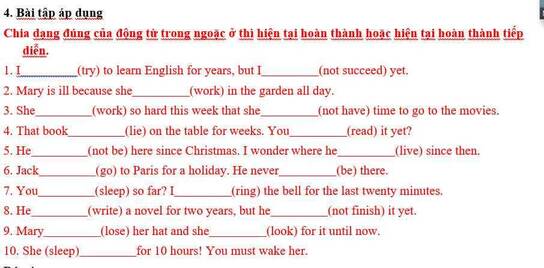 Giúp em với ạ
Giúp em với ạ
K
Khách
Hãy nhập câu hỏi của bạn vào đây, nếu là tài khoản VIP, bạn sẽ được ưu tiên trả lời.


CM
24 tháng 4 2022
It's hot and sunny
It will be cloudy
It is rainy
It is cold and stormy
It is warm and sunny
DD
4

23 tháng 4 2022
Nhà trường làm một vườn hoa hình chữ nhật có chu vi là 250m biết chiều dài gấp 4 lần chiều rộng tính diện tích vườn hoa?
23 tháng 4 2022
I'd to be a scientist
Because I can study new things for the world
NT
1

TH
23 tháng 4 2022
1. have tried - have not succeeded
2. has worked 3. has worked - is not having 4. has lain - Have you read
5. has not been - has lived 6. has gone - He has never been there.
7. Have you slept - have rung 8. has written - has not finished
9. has lost - is looking
10. has slept
NN
3

1. I like mokeys because they are funny
2. I go to school at seven o'clock
3. Why do you want to go to the post office ?
4. How much are they ?